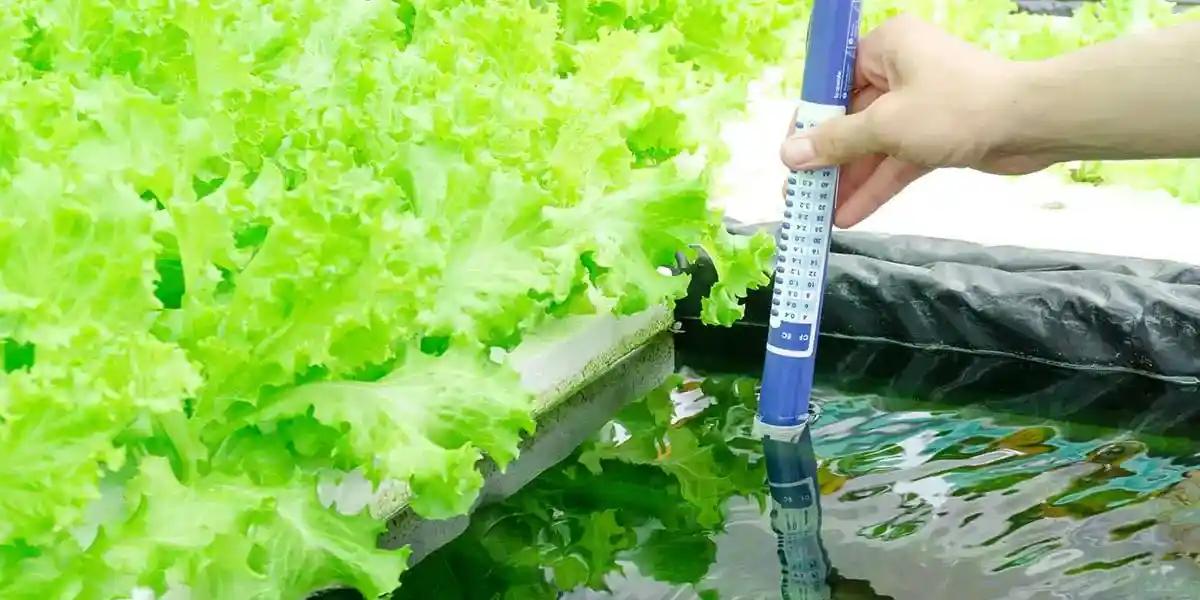
Mar 29, 2023
Blog Digital World pH Sensors: The Tool that’s Vital to a Functioning Society
Small but mighty, pH sensors are integral in ensuring the wellbeing of society. They’re used to measure the alkalinity and acidity in water and other solutions, and play a key role in ensuring the safety and quality of a product. Naturally, they’re in high demand, and this trend will only continue: BCC Research expects the global market for pH sensors to reach heights of $5.2 billion in 2027, up from $3.9 billion in 2022.
Without pH sensors, our food and drinking water may be compromised, our products of lesser quality, and manufacturing hugely impacted. They’re vitally important, and with sustained growth on the cards, it’s time to dive into the main reasons they’re witnessing increased demand.
Global warming is set to impact every aspect of our society – from our weather to our housing, to our energy systems and education, no area will go untouched. Unsurprisingly, global water supply will be profoundly altered by climate change, which is expected to drive the market for pH sensors in the future.
Scientists expect droughts to increase in both frequency and severity in a post-climate change world. Fresh water will be in finite supply, prompting governments to explore last-resort options like water desalination. Currently, National Geographic estimates that only 2.5% of the water on earth is drinkable – and climate change is set to impact this figure further.
In response to the imminent water crisis, governments are scrambling to develop wastewater treatment technologies. With many countries using more water than is readily available to them, the processing and treatment of discharged wastewater is becoming increasingly necessary.
Governments and regulatory authorities must make impactful initiatives regarding water and wastewater treatment technologies quickly. If those responsible fail to act, the consequences could be severe. The Guardian newspaper recently reported quoted the French scientific research center CNRS, which attributed the country’s summer drought to “anthropogenic climate change”, with the recent winter’s drought showing “the same characteristics”.
The climate situation is reaching critical levels, with technologies that may alleviate the looming crisis in increasing demand. These factors are driving the market for pH sensors in the coming years.
BCC Research’s latest report on the global market for pH sensors breaks down the data across various touchpoints, including product type, region, end-use industry, and more. Download your complimentary report of our Global Market for pH Sensors report and access the report in full.
Another factor – one that is inextricably linked to the onset of climate change – that is driving the need for pH sensors is the ever-climbing population. Standing now at roughly 8 billion people, the population is expected to swell over the coming decades. By 2050, the UN expects a global population of around 9.2 billion, which is piling greater pressure on an already tight water supply. The framework to support this growth is simply not in place. Water mains and sewer systems require a major overhaul to meet the current and future needs of the population.
Globally, around 8% of water is used by households, 70% by agribusiness, and 22% industrially. Regionally, uses differ; In developed nations, approximately half the water is reserved for industrial uses, while in developing nations, farming accounts for around 80%. The growing population is creating a high demand for food, which is in turn driving demand for irrigation for agricultural purposes. But most revenues for pH testing equipment stem primarily from the industrial and domestic sectors, rather than agriculture.
While pH sensors are useful contraptions, they aren’t without their faults. These flurry of factors may put the brakes on market growth in the future, with the main difficulties being:
BCC Research’s latest report on the global market for pH sensors breaks down the data across various touchpoints, including product type, region, end-use industry, and more. We analyze the characteristics of this in-demand industry, helping players to achieve market clarity and achieve lasting success.
Do you need access to a range of data in the instrumentation and sensors sector? Then a membership with our research library may be the option for you. Membership will grant access to the full scope of reports within a category of your choice – simply get in touch to find out more.

Olivia Lowden is a Junior Copywriter at BCC Research, writing content on everything from sustainability to fintech. Before beginning at BCC Research, she received a First-Class Master’s Degree in Creative Writing from the University of East Anglia.

From smartphones to satellites, antennas play a vital role in enabling the seaml...

Introduction Artificial Intelligence (AI) and the Internet of Things (IoT) are r...

We are your trusted research partner, providing actionable insights and custom consulting across life sciences, advanced materials, and technology. Allow BCC Research to nurture your smartest business decisions today, tomorrow, and beyond.
Contact UsBCC Research provides objective, unbiased measurement and assessment of market opportunities with detailed market research reports. Our experienced industry analysts assess growth opportunities, market sizing, technologies, applications, supply chains and companies with the singular goal of helping you make informed business decisions, free of noise and hype.